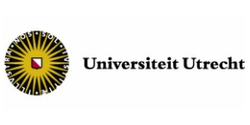Postdoc: Historical Sense Making in Times of Crisis – Adapt!
Updated: 27 Nov 2024
Adapt! is a team of researchers from multiple universities, united by a shared mission: to build knowledge and expertise that prepares societies for future crises. Are you ready to contribute? Join us as a postdoctoral researcher!
Your job
On the basis of the historical repository of crisis narratives, you will identify, map and chart the course of strategic crisis narratives across time. Within a time span of 1800 to the present day, in cooperation with PhD candidates, you will study political crises (violent extremism–related ones) and disasters in a comparative way, across the different countries outlined above, paying particular attention to different narratives created by various groups across society.
At the same time, in conjunction with other postdocs within Adapt!, you will help to set up a project infrastructure for monitoring and supervising PhD candidates, and create an interface between the researchers on the one hand and policy-makers, frontline professionals, and citizens on the other for the co-production of knowledge. This part of the project includes integrative action research initiatives, with four long term living labs in four cities and ongoing cross-country feasibility probes.
Within Adapt!, you focus on leading the subproject on historical sense making in times of crisis. Together with the other postdoc of work package 1, you will develop a dataset of historical crisis narratives, combining qualitative archival research with quantitative methods to produce insights into strategic crisis narratives. You will also play a key role in establishing a structure to monitor PhD candidates and developing a PhD education programme (kwartiermaken). Additionally, you will help translate research findings into integrative action research initiatives and feasibility studies, collaborating closely with other postdocs and PhD researchers.
You will conduct research on the history of crisis from 1800 to the presence, archival sources, secondary data and other related information taken from ongoing living lab projects. In practice you will have the following tasks and responsibilities:
- conducting research within the period of appointment;
- publishing peer-reviewed journal articles and co-editing a volume;
- initiating organisation of events, workshops or conferences;
- participating in project meetings, and closely collaborating with the other members of the research team;
- initiating in helping to set up a monitoring structure for the Adapt! PhD candidates;
- help with the crisis database;
- help with the Living Labs, in particular with TerInfo, and feasibility probes;
- assisting with knowledge dissemination and other activities of the project;
- presenting research results at national and international workshops and conferences.
Requirements:
- You hold a PhD degree in history: political history, history of international relations or a comparable field.
- You have an excellent command of spoken and written Dutch, English and preferably another modern language.
- You are able to work independently and to write academic publications and publications aimed at wider dissemination of research.
- You have demonstrable team spirit and experience working with others.
- You have strong interpersonal, analytical and organisational skills.
- You have experience both in primary, foundational research and applied research (translating insights into practice).
Salary Benefits:
We offer:
- a temporary job for five years, starting 15 January 2025, depending on previous UU contracts;
- a working week of 32 hours and a gross monthly salary between €3,378 and €4,537 in the case of full-time employment (salary scale 10-11 under the Collective Labour Agreement for Dutch Universities (CAO NU));
- 8% holiday pay and 8.3% year-end bonus;
- a pension scheme, partially paid parental leave and flexible terms of employment based on the CAO NU.
In addition to the terms of employment laid down in the CAO NU, Utrecht University has a number of schemes and facilities of its own for employees. This includes schemes facilitating professional development, leave schemes and schemes for sports and cultural activities, as well as discounts on software and other IT products. We also offer access to additional employee benefits through our Terms of Employment Options Model. In this way, we encourage our employees to continue to invest in their growth. For more information, please visit Working at Utrecht University.
32 hours per week
Drift 10

